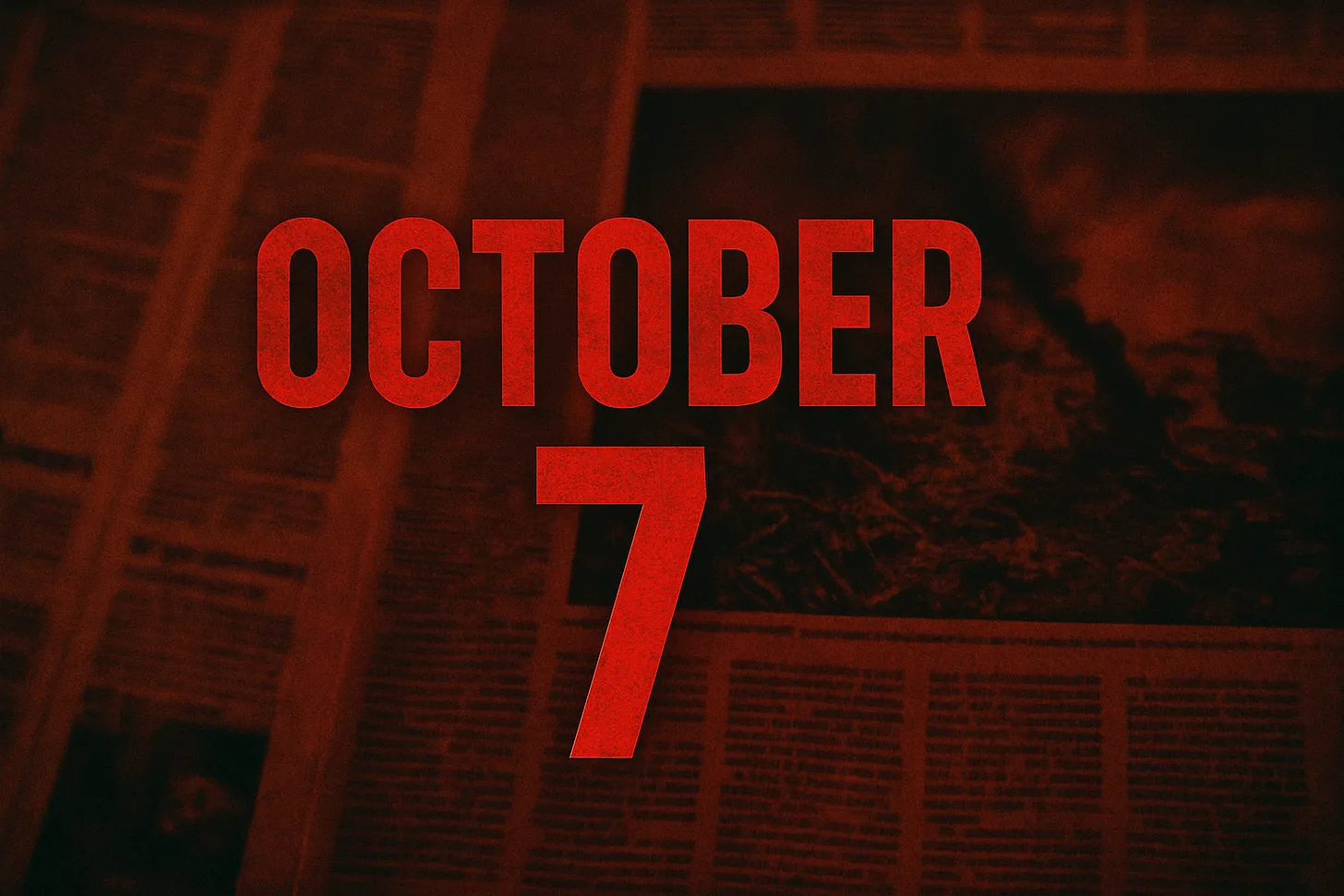The Israeli government has long relied on fear to fuel policy, justify occupation, and secure power. But on October 7, the fear was real, the blood was fresh, and the enemy had breached every layer of what was supposedly the most secure border in the world. Over 1,000 Israelis died in a single day. And yet, the question remains, how?
The official story is a failure, a collapse of intelligence, a breakdown. But that narrative doesn't hold, Gaza is the most surveilled strip of land on Earth. Not only that, Egypt warned them. Beyond everything else Netanyahu needed a war.
Three days before the attack, Egyptian intelligence sent a warning to Israel: something big is coming from Gaza. This wasn’t an ambiguous heads-up. It was the kind of warning that, under normal circumstances, would set the entire Israeli security apparatus into motion.
But there was no motion. No troop surges. No heightened border alerts. No civilian evacuations near Gaza. In fact, reports later confirmed that some IDF forces had been pulled from the south and stationed in the West Bank to protect settlers.
Egypt warned them. And they did nothing.
Israel has spent billions perfecting its surveillance state. Gaza is watched from above, infiltrated below, monitored digitally, and penetrated physically. They know who breathes. They know when electricity is used. They know the tunnels. They know the drills.
So how does a coordinated attack involving paragliders, bulldozers, drones, and multiple breach points go unnoticed? It doesn’t. Unless it’s meant to.
In the weeks before the attack, Netanyahu was in crisis. His judicial reforms had fractured Israeli society. Mass protests filled the streets. Military reservists were refusing service. His popularity was at rock bottom.
Then came October 7. Suddenly, Israel had a war. And Netanyahu had cover.
The country rallied. Dissent vanished. The political conversation shifted from internal rot to external threat. And the man who had helped prop up Hamas for years to sabotage the Palestinian Authority now claimed to be its greatest enemy.
This isn’t the first time Israeli leadership has sacrificed the few for the goals of the state. The Hannibal Doctrine explicitly permits lethal force to prevent soldiers from being captured, even if it means killing them. Civilian lives have never been exempt from that logic.
History offers precedent. The 1973 Yom Kippur War came after ignored intelligence, leading to devastating losses, and massive U.S. support. Some believe it was allowed to escalate for strategic gain.
October 7 fits that pattern. Let them strike. Let the world see the blood. Then respond without restraint.
Netanyahu didn’t just tolerate Hamas. He empowered them.
“Anyone who wants to prevent the establishment of a Palestinian state must support strengthening Hamas.” Benjamin Netanyahu, 2019
That wasn’t a mistake. It was a policy. A strong Hamas weakened the Palestinian Authority. A divided Palestine meant no peace process. No pressure to compromise. No path to statehood.
But once Hamas went off-script, once they crossed the fence and made their violence undeniable, the same state that nurtured them cried horror and declared total war.
What came after October 7 was not a reaction. It was a plan in waiting. The scale and speed of Israel’s military campaign, the bombing, the displacement, the starvation policies, the digital blackouts, suggest preparation.
They flattened entire neighborhoods. They starved a people. They killed journalists, bombed hospitals, and displaced nearly two million civilians. None of that is planned overnight.
Egypt’s warning. Hamas’ increased activity. The border troop pullback. The silence wasn’t a lapse. It was policy. A calculated delay. A sacrifice deemed worth it.
For Netanyahu, October 7 was the catalyst. The fire that burned away protest. The terror that reset the narrative.
Netanyahu is still in office.
His coalition partners are now openly calling for annexation and permanent occupation, the West Bank is being ethnically cleansed in slow motion, Gaza is in ruins, Hamas is broken, but so is Palestinian civil society.
And Israel, far from being isolated, continues to receive unconditional military support from the U.S.
There will be no serious investigation. No resignations. No trials. Just the same recycled talking points about existential threats, Hamas tunnels, and the purity of Israeli arms.
The truth will be buried beneath rubble and propaganda.
But the reality will remain: Israel allowed October 7 to happen. Because they needed what came next.





